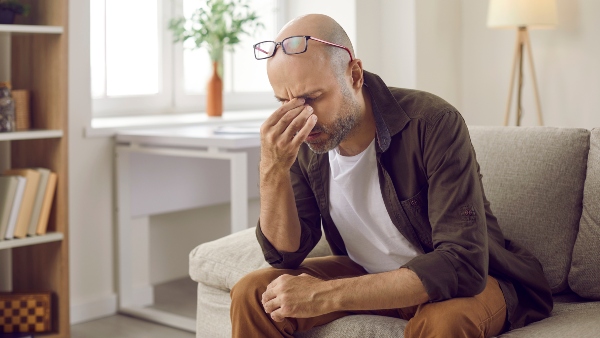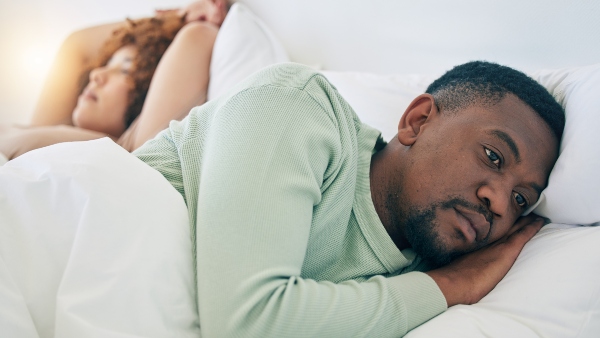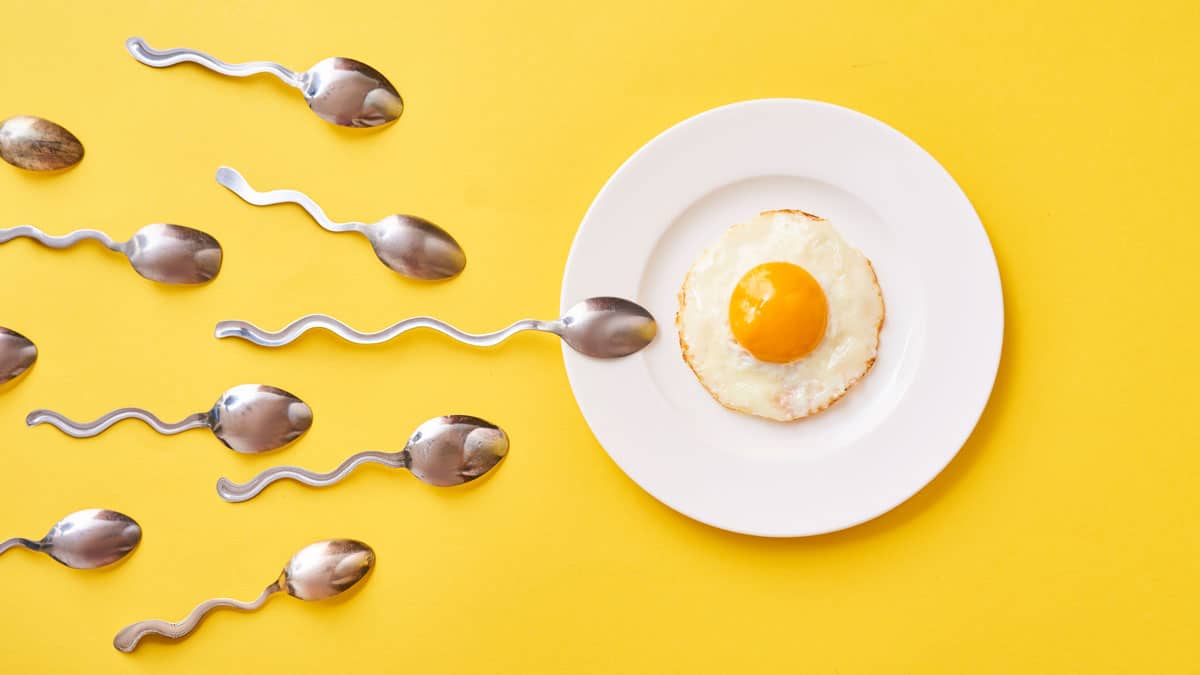Alcohol has been called “liquid courage,” so it’s ironic that it can decrease the production of the sex hormone that helps men put courage into action.
As a urologist and surgeon scientist specializing in male infertility and sexual medicine, I’ve had conversations with guys who are surprised to learn that drinking alcohol can affect their testosterone levels.
This surprise often turns to concern when they learn that this hormone is a key player in energy, mood, muscle mass, sex drive, and fertility. That’s why it’s important to understand how alcohol impacts testosterone, what symptoms to watch for if your levels are low, and how it ties into fertility if you’re starting a family.
How alcohol affects testosterone
Having the occasional drink isn’t likely to affect your testosterone levels. But if you’re regularly knocking back excessive amounts, it could become a problem. That’s because drinking too much can lead to weight gain, obesity, and even diabetes, conditions that are all linked to low testosterone (and many other health issues).
Long-term drinking and testosterone
The long-term effects of alcohol on testosterone are still being studied. But the broader message is clear: heavy drinking isn’t doing your hormone levels any favours. If you’ve been over-indulging for years, it’s time to cut back for the sake of your testosterone and the rest of your health, for that matter.
If you’re wondering whether you drink too much, read more about the signs of alcohol use disorder here.
Signs of low testosterone

The symptoms of low testosterone (low T) can be vague and overlap with a bunch of other health issues. This is why you may not even realize you have this condition; you could just feel “off.”
Here’s a rundown of some common signs:
Sexual symptoms
- Decreased sex drive
- Trouble with ejaculation or less volume
- Fewer morning erections
Mental symptoms
- Feeling tired all the time (even after a good night’s sleep)
- Feeling down or experiencing mood swings
- Difficulty concentrating or experiencing “brain fog”
- Trouble falling and/or staying asleep
Physical symptoms
- Gaining fat and having a hard time losing it
- Losing muscle mass and strength
- Hair loss on your scalp, face, underarms, pubic area, or pretty much anywhere else hair grows
- Fatigue (caused by low T impacting red blood cell production)
When to get tested
If these symptoms are familiar, it might be time to talk to your healthcare provider. While routine testosterone tests aren’t something most doctors order unless they have a reason—erectile dysfunction often prompts a test, for instance—it’s worth raising if you’re experiencing multiple symptoms.
As men get older, testosterone levels naturally decline. By age 40, about a quarter of men have low T. However, for some men, it starts in their 30s.
Low testosterone and fertility

If your healthcare provider has recommended that you take hormone-boosting supplements and you’re trying to start a family, let your healthcare provider know.
It might seem logical that testosterone supplements boost fertility, but in many cases, taking external testosterone (like anabolic steroids or testosterone therapy) can lead to infertility.
When you take external testosterone, it can shut down your body’s natural production of the hormone and stop sperm production altogether. It’s not the outcome you want if you’re trying to start a family. It’s best to work with a male fertility specialist to find a treatment that boosts testosterone naturally.
Lifestyle changes that help testosterone levels
Manage stress: Chronic stress messes with all hormones, including testosterone. Take time to relax.
Sleep well: Good sleep supports healthy testosterone levels, so aim for 7 to 9 hours of quality sleep every night.
Eat right: Ditch the processed junk and focus on vegetables, healthy fats (like omega-3s), and lean proteins. Basically, if it’s good for your heart, it’s good for your testosterone.
Exercise regularly: Working out boosts testosterone, but don’t go overboard. Too much exercise can actually have the opposite effect. On the flip side, a sedentary lifestyle can also lower testosterone levels.
Despite the major role that testosterone plays in men’s health, it’s easy to overlook how habits like alcohol consumption can throw it out of whack.
So stay informed, listen to your body, talk to your doctor if symptoms show up, and work towards lifestyle changes that deliver health benefits that extend far beyond testosterone. Last but not least, if you’re worried about fertility, be sure to consult a specialist before starting any kind of testosterone therapy.
Have you ever experienced low testosterone and want to share your story with us? Give us a shout-out in the comments below so we can contact you. Or, email us at [email protected].
Are You at Risk?
Learn your risk level for the most common men’s health conditions in 10 minutes with a free, confidential, and personalized report.






Let’s Talk!
Did you enjoy this article? Let us know in the comments.
0 Comments